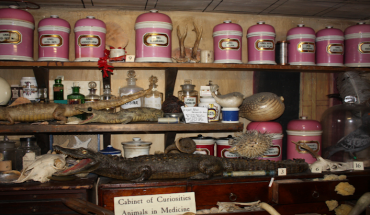As a mum of three, I know just how dirty a family car can get. My children are grown up now but I remember long car journeys from where we lived in St Albans all the way to Cornwall on holiday. It was the usual happy chaos, with the kids fighting for legroom, the dog in the back, and everyone blowing their noses and spilling drinks in their laps. By the time we arrived at our destination, the car resembled a bombsite. It was always the first chore of the vacation to wipe the seats, clean up the crumbs and vacuum up the dog hairs.
It doesn’t surprise me at all that the latest research from Salford University backs up what I have always known – the average car is a breeding ground for bacteria. Of course, I don’t want people to panic unnecessarily, but in the run up to the flu season, a dirty car could even make you ill enough to miss work, university lectures or school. The flu virus is transmitted by coughs and sneezing but also survives on surfaces which we touch with our hands and then bring up to our mouths and eyes. These surfaces can include steering wheels, gear sticks and handbrakes.
Using swabs from around the handbrake and other nooks and crannies in cars, the researchers found that car interiors were 21 times dirtier (contained bacteria at higher density) than smartphone screens and 50 per cent dirtier than computer keyboards. Many of these bugs are bad for human health, including E-coli which causes nasty stomach cramps and diarrhoea.
But most people seem to be blissfully unaware that there really is a problem. In fact, motorists thought their car was one of the cleanest items they own, with less than a tenth correctly identifying it as a potential carrier of germs.
The research, commissioned by Sellcar.co.uk, found that almost two thirds of motorists gave little thought to the bugs that could be teeming on their handbrake and rarely made an effort to clean the interior. More than 80 per cent of motorists only clean the inside of their cars once a month or even less.
Luckily, there are simple steps to ensure that your car stays relatively bug free. I would suggest keeping sealed Dettol wipes and an antibacterial hand gel in the car so that you can wipe the steering wheel, handbrake and other surfaces regularly – particularly if you share the car with other people and when you have a cold, or when someone spills something or even worse is sick in the car. Have a bin bag available so people can throw used tissues and rubbish away carefully, and not simply drop them on the floor.
Take responsibility for your own health and clean the steering wheel of a hire car before you set off. When using a taxi as a passenger, don’t eat and drink while on the journey and clean your hands after you arrive at your destination. Taxis can take hundreds of passengers a day, and bugs can build up. The same applies to public transport – I am amazed how many people munch away on crisps when on the tube, licking their fingers and transporting viruses and bacteria from their hands directly into their mouths. Given many people are unsuspecting carriers of diseases such as norovirus, and around 50 per cent of people don’t wash their hands after going to the loo, then this is not a good plan! I’m always suspicious too if a car or taxi smells strongly of deodorisers. Better to be odourless and clean than smell of chemicals that simply mask the fact that the car is filthy.
Act quickly if there are spills in the car or someone is sick. Damp stains containing food particles can quickly encourage bacteria to proliferate, to say nothing of the smell. Odour is one of the hardest things to get rid of from a car, something to think of for when you come to sell before you discover its caused your car to drop in value with people reluctant to buy it. Cars with leather seats are easier to clean too.
The added benefit to having a clean, fresh-smelling car is that it will also enhance its resale value. That could certainly make it worth your while to get the wet wipes out a bit more regularly.
- Our pigsty cars can give us flu - 2nd November 2016






